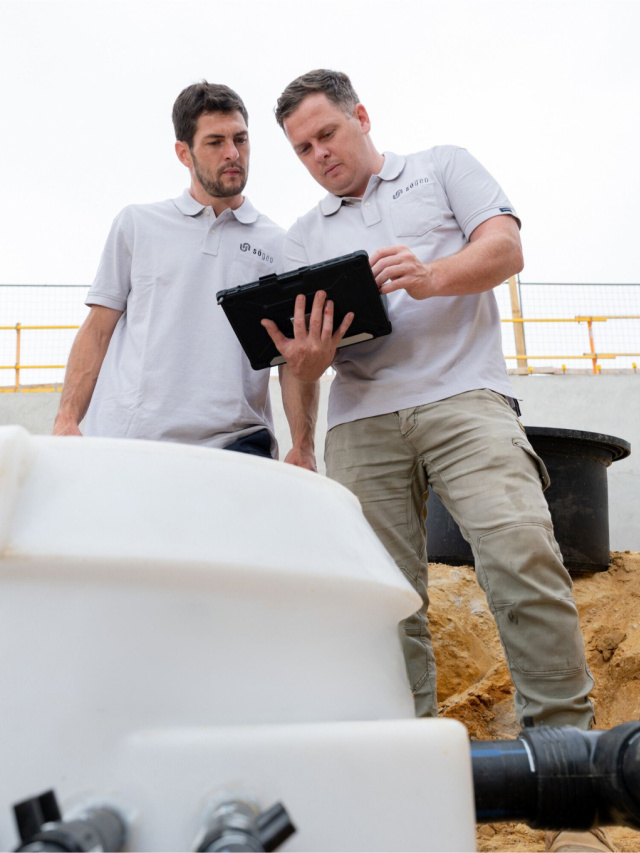Maintenance Requirements
Geothermal systems require minimal maintenance, primarily consisting of routine checks and filter replacements. The underground loops that circulate the heat transfer fluid are designed to be durable and resistant to corrosion, lasting for decades without needing replacement.
The indoor components, such as the heat pump unit and air handlers, require periodic cleaning and inspection, similar to traditional HVAC systems. However, the lack of exposure to outdoor elements means these components tend to experience less wear and tear, reducing the likelihood of breakdowns or costly repairs.
It’s recommended to have a professional geothermal contractor perform an annual inspection and maintenance check to ensure optimal performance and identify any potential issues early on. Regular maintenance can help extend the lifespan of the system and prevent costly repairs down the line.
Expected Lifespan and Durability
One of the most impressive aspects of geothermal heating and cooling systems is their exceptional longevity. With proper installation and maintenance, the heat pump component can last for 25 years or more, significantly outlasting traditional HVAC systems, which typically need replacement every 10 to 15 years.
The underground loop system, which is the heart of a geothermal installation, is designed to withstand the harsh conditions underground, resisting corrosion and maintaining its integrity for decades. The high-density polyethylene pipes used in these loops are incredibly durable and can withstand constant temperature fluctuations without degradation.
The indoor components, such as the heat pump unit and air handlers, are also built to last, thanks to their high-quality construction and the fact that they operate in a controlled indoor environment, shielded from the elements.
With proper maintenance and care, a well-designed and installed geothermal system can provide reliable and efficient heating and cooling for the lifetime of a home or commercial building, making it a truly sustainable and cost-effective investment.
Innovations in Geothermal Technology
Geothermal technology has experienced significant advancements in recent years, leading to improved efficiency, reduced costs, and enhanced performance. One of the most notable innovations is the development of hybrid geothermal systems, which combine geothermal heat pumps with other renewable energy sources, such as solar panels or wind turbines. These hybrid systems can further reduce energy consumption and carbon emissions, making them an even more attractive option for environmentally conscious consumers.
Another exciting development in the geothermal industry is the integration of advanced control systems and smart technology. These systems use sophisticated algorithms and real-time data to optimise the performance of geothermal heat pumps, ensuring they operate at peak efficiency while minimising energy waste. Additionally, smart technology allows for remote monitoring and control, enabling homeowners and facility managers to adjust settings and monitor energy usage from their mobile devices.
Future trends in geothermal technology are also promising. Researchers are exploring the use of advanced drilling techniques and innovative loop configurations to improve the efficiency and cost-effectiveness of geothermal installations. These advancements could make geothermal systems more accessible to a wider range of residential and commercial properties, further driving the adoption of this sustainable heating and cooling solution.
Moreover, the integration of geothermal systems with other emerging technologies, such as energy storage solutions and smart home systems, could unlock new opportunities for energy management and cost savings. By seamlessly integrating geothermal heating and cooling with other energy-efficient technologies, homeowners and businesses can create highly optimised and sustainable energy ecosystems.
Overall, the innovations in geothermal technology are driving increased efficiency, reduced costs, and greater accessibility for this renewable energy solution. As the technology continues to evolve, geothermal heating and cooling systems are poised to become an even more attractive and viable option for those seeking sustainable and cost-effective heating and cooling solutions.

If you’re interested in exploring geothermal heating and cooling solutions for your home or business in Melbourne, we encourage you to take action today. Contact the experts at sogeo.com.au for a free consultation or quote. Our knowledgeable team will assess your specific needs and provide tailored recommendations to help you make an informed decision.
To further your understanding of geothermal technology, we invite you to download our comprehensive guide, “Harnessing the Earth’s Energy: A Homeowner’s Guide to Geothermal Heating and Cooling.” This valuable resource covers everything from the basics of geothermal systems to the installation process, maintenance requirements, and potential cost savings.
Additionally, you can stay up-to-date with the latest developments in geothermal technology and exclusive offers by signing up for our newsletter. Simply provide your email address, and you’ll receive regular updates straight to your inbox.
Don’t miss out on the opportunity to embrace a more efficient, sustainable, and cost-effective heating and cooling solution for your Melbourne property.
If you’re interested in exploring geothermal heating and cooling solutions for your home or business in Melbourne, we encourage you to take action today.






